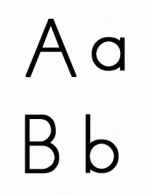“Antisocial and violent conduct is a major social problem, which also generates significant economic costs, and is hence an important target for government intervention. Such conduct runs in families, and a small proportion of families in any community account for a large proportion of its violent crime. Hence risk for antisocial aggression is transmitted intergenerationally. While twin studies have shown significant heritability, they have been unable to identify the specific genetic bases of risk.” (Neuro, 188)
Passive aggressive actions
We’re just alike
Acting out aggression afterward
Violence might be silent
But it is never silenced
We two are the same, why?
Genetic likeness
Like the fuel was lit inside us
Sometimes it seems futile to fight it
Once ignition goes decisions go
From good to bad and they’re out the window
And we’re put into limbo
But why us two here now?
Why we so alike
Where it’s hard to hear now
It’s cause our type is the same
Which is why we both end caught up
In passive aggression that bothers
Because it’s me and him
And he, is my father.

